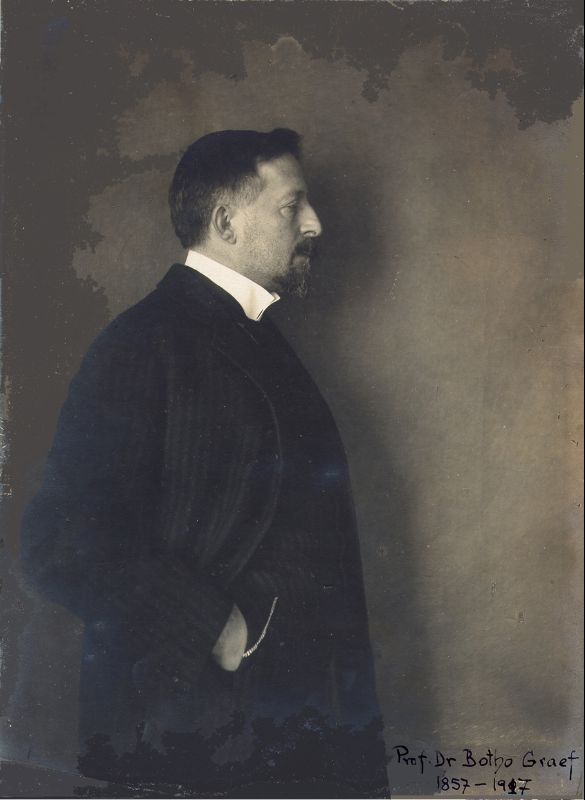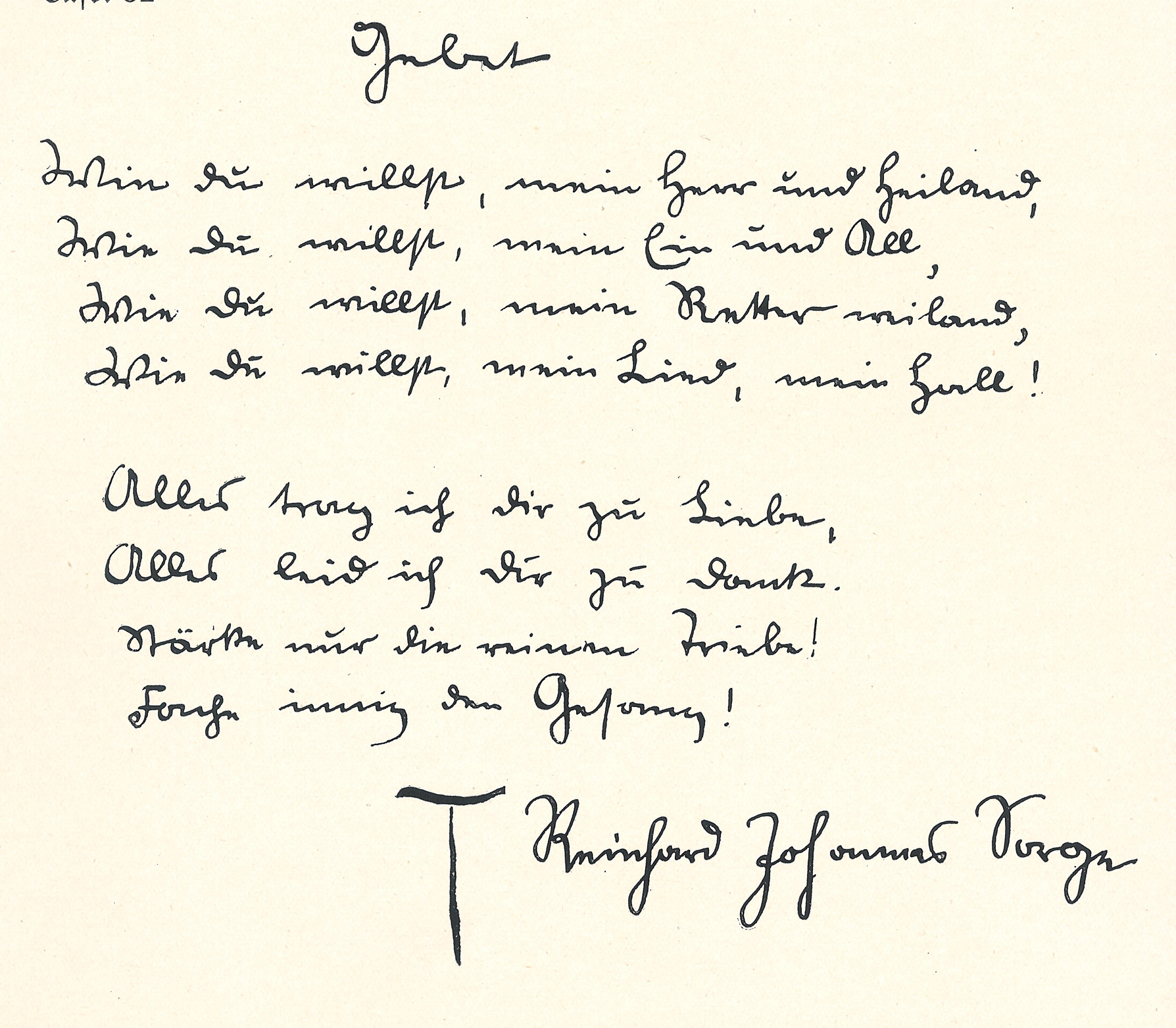|
Felix Auerbach
Felix Auerbach (12 November 1856 – 26 February 1933) was a German physicist. Life Auerbach was born in Breslau (today Wrocław) on 12 November 1856. His father, Leopold Auerbach, was a respected physician and professor of medicine at the University of Breslau. His mother was Arabella Auerbach, née Hess. From her, he acquired the talent and love for music that accompanied him throughout his life. Felix was the eldest of six siblings. The chemist, Friedrich Auerbach (1870–1925), and Wroclaw pianist, Max Auerbach (born 1872), were his younger brothers. Felix Auerbach received his humanistic education from 1865 to 1873 at Mary Magdalene School in his home town. After leaving school, at the age of 16, he went to study at the universities of Breslau, Heidelberg - with Gustav Robert Kirchhoff - and Berlin - with Hermann Helmholtz. Under Helmholtz, he received his doctorate in 1875. The title of his dissertation ''The nature of vocal sounds'' demonstrated his interest ... [...More Info...] [...Related Items...] OR: [Wikipedia] [Google] [Baidu] |
Physicist
A physicist is a scientist who specializes in the field of physics, which encompasses the interactions of matter and energy at all length and time scales in the physical universe. Physicists generally are interested in the root or ultimate causes of phenomena, and usually frame their understanding in mathematical terms. Physicists work across a wide range of research fields, spanning all length scales: from sub-atomic and particle physics, through biological physics, to cosmological length scales encompassing the universe as a whole. The field generally includes two types of physicists: experimental physicists who specialize in the observation of natural phenomena and the development and analysis of experiments, and theoretical physicists who specialize in mathematical modeling of physical systems to rationalize, explain and predict natural phenomena. Physicists can apply their knowledge towards solving practical problems or to developing new technologies (also known as applie ... [...More Info...] [...Related Items...] OR: [Wikipedia] [Google] [Baidu] |
Johannes Ilmari Auerbach
Johannes is a Medieval Latin form of the personal name that usually appears as "John" in English language contexts. It is a variant of the Greek and Classical Latin variants (Ιωάννης, ''Ioannes''), itself derived from the Hebrew name '' Yehochanan'', meaning "Yahweh is gracious". The name became popular in Northern Europe, especially in Germany because of Christianity. Common German variants for Johannes are ''Johann'', ''Hannes'', '' Hans'' (diminutized to ''Hänschen'' or ''Hänsel'', as known from "''Hansel and Gretel''", a fairy tale by the Grimm brothers), '' Jens'' (from Danish) and ''Jan'' (from Dutch, and found in many countries). In the Netherlands, Johannes was without interruption the most common masculine birth name until 1989. The English equivalent for Johannes is John. In other languages *Joan, Jan, Gjon, Gjin and Gjovalin in Albanian *'' Yoe'' or '' Yohe'', uncommon American form''Dictionary of American Family Names'', Oxford University Press, 2013. *Yaḥy ... [...More Info...] [...Related Items...] OR: [Wikipedia] [Google] [Baidu] |
Walter Gropius
Walter Adolph Georg Gropius (18 May 1883 – 5 July 1969) was a German-American architect An architect is a person who plans, designs and oversees the construction of buildings. To practice architecture means to provide services in connection with the design of buildings and the space within the site surrounding the buildings that h ... and founder of the Bauhaus School, who, along with Alvar Aalto, Ludwig Mies van der Rohe, Le Corbusier and Frank Lloyd Wright, is widely regarded as one of the pioneering masters of modernist architecture. He is a founder of Bauhaus in Weimar (1919). Gropius was also a leading architect of the International Style (architecture), International Style. Family and early life Born in Berlin, Walter Gropius was the third child of Walter Adolph Gropius and Manon Auguste Pauline Scharnweber (1855–1933), daughter of the Prussian politician Georg Scharnweber (1816–1894). Walter's great-uncle Martin Gropius (1824–1880) was the architect of t ... [...More Info...] [...Related Items...] OR: [Wikipedia] [Google] [Baidu] |
Bauhaus
The Staatliches Bauhaus (), commonly known as the Bauhaus (), was a German art school operational from 1919 to 1933 that combined crafts and the fine arts.Oxford Dictionary of Art and Artists (Oxford: Oxford University Press, 4th edn., 2009), , pp. 64–66 The school became famous for its approach to design, which attempted to unify individual artistic vision with the principles of mass production and emphasis on function. The Bauhaus was founded by architect Walter Gropius in Weimar. It was grounded in the idea of creating a Gesamtkunstwerk ("comprehensive artwork") in which all the arts would eventually be brought together. The Bauhaus style later became one of the most influential currents in modern design, modernist architecture, and architectural education. The Bauhaus movement had a profound influence upon subsequent developments in art, architecture, graphic design, interior design, industrial design, and typography. Staff at the Bauhaus included prominent artists ... [...More Info...] [...Related Items...] OR: [Wikipedia] [Google] [Baidu] |
Weimar
Weimar is a city in the state of Thuringia, Germany. It is located in Central Germany between Erfurt in the west and Jena in the east, approximately southwest of Leipzig, north of Nuremberg and west of Dresden. Together with the neighbouring cities of Erfurt and Jena, it forms the central metropolitan area of Thuringia, with approximately 500,000 inhabitants. The city itself has a population of 65,000. Weimar is well known because of its large cultural heritage and its importance in German history. The city was a focal point of the German Enlightenment and home of the leading figures of the literary genre of Weimar Classicism, writers Johann Wolfgang von Goethe and Friedrich Schiller. In the 19th century, noted composers such as Franz Liszt made Weimar a music centre. Later, artists and architects such as Henry van de Velde, Wassily Kandinsky, Paul Klee, Lyonel Feininger, and Walter Gropius came to the city and founded the Bauhaus movement, the most important German de ... [...More Info...] [...Related Items...] OR: [Wikipedia] [Google] [Baidu] |
Jena Art Association
Jena () is a German city and the second largest city in Thuringia. Together with the nearby cities of Erfurt and Weimar, it forms the central metropolitan area of Thuringia with approximately 500,000 inhabitants, while the city itself has a population of about 110,000. Jena is a centre of education and research; the Friedrich Schiller University was founded in 1558 and had 18,000 students in 2017 and the Ernst-Abbe-Fachhochschule Jena counts another 5,000 students. Furthermore, there are many institutes of the leading German research societies. Jena was first mentioned in 1182 and stayed a small town until the 19th century, when industry developed. For most of the 20th century, Jena was a world centre of the optical industry around companies such as Carl Zeiss, Schott and Jenoptik (since 1990). As one of only a few medium-sized cities in Germany, it has some high-rise buildings in the city centre, such as the JenTower. These also have their origin in the former Carl Zeiss factor ... [...More Info...] [...Related Items...] OR: [Wikipedia] [Google] [Baidu] |
Ernst Ludwig Kirchner
Ernst Ludwig Kirchner (6 May 1880 – 15 June 1938) was a German expressionist painter and printmaker and one of the founders of the artists group Die Brücke or "The Bridge", a key group leading to the foundation of Expressionism in 20th-century art. He volunteered for army service in the First World War, but soon suffered a breakdown and was discharged. His work was branded as "degenerate" by the Nazis in 1933, and in 1937 more than 600 of his works were sold or destroyed."Ernst Ludwig Kirchner: German, 1880–1938" . |
Botho Graef
Franz Botho Graef (12 October 1857, Berlin – 9 April 1917, Königstein im Taunus) was a German classical archaeologist and art historian. His father was painter Gustav Graef, and his sister, Sabine Lepsius, was also an artist of some note. Graef taught at the University of Jena from 1904 until 1917. Writings * ''Hodlers und Hofmanns Wandbilder in der Universität Jena''. Eugen Diederichs Verlag, Jena, 1910. * ''Henry van de Velde Henry Clemens van de Velde (; 3 April 1863 – 15 October 1957) was a Belgian painter, architect, interior designer, and art theorist. Together with Victor Horta and Paul Hankar, he is considered one of the founders of Art Nouveau in Belgium ...'' In: Der Bücherwurm. Monatsschrift für Bücherfreunde. Verlag der Bücherwurm, Dachau, 1913. * Written with Ernst Langlotz: ''Die antiken Vasen von der Akropolis zu Athen'', Bd. I-II, de Gruyter, Berlin, 1925-1933 (posthum). References Biographie Stadt Jena* 1857 births 1917 deaths Germa ... [...More Info...] [...Related Items...] OR: [Wikipedia] [Google] [Baidu] |
Eberhard Grisebach
Eberhard is an old Germanic name meaning the strength or courage of a wild boar. People First name *Eberhard of Friuli (815–866), Duke and key figure in the Carolingian Empire *Eberhard of Béthune (died 1212), Flemish grammarian *Eberhard I, Duke of Württemberg (1445–1496) *Eberhard II, Count of Württemberg (after 1315–1392) *Eberhard I, Count of Bonngau (died 937) *Eberhard III, Duke of Franconia (''ca'' 885–939) * Eberhard (Archbishop of Trier) (1010–1066) *Eberhard of Salzburg (died 1164), Bishop of Salzburg and saint *Eberhard Anheuser (1806–1880), Soap and candle maker, co-founder of Anheuser-Busch *Eberhard Weber (* 1940), German jazz musician and composer Last name *Eberhard family, a prominent Swiss industrialist family ( Eberhard & Co.) from Bern whose origin has been traced back to the 10th century ** George-Emile Eberhard (1868–1936), founder of Eberhard & Co **George Eberhard, George-Emile's son and heir **Maurice Eberhard, George-Emile's son and heir * ... [...More Info...] [...Related Items...] OR: [Wikipedia] [Google] [Baidu] |
Reinhard Sorge
Reinhard Sorge (29 January 1892, Berlin, German Empire – 20 July 1916, Ablaincourt, France) was a German people, German dramatist and poet. He is best known for writing the Expressionism (theatre), Expressionist play ''The Beggar (Sorge), The Beggar'' (''Der Bettler''), which won the Kleist Prize in 1912 and almost singlehandedly created modern theatrical stagecraft. After being subsequently received into the Roman Catholic Church, Sorge began an effort to bring the Catholic literary revival into the literature of the Germanosphere. Instead, Sorge was conscripted into the Imperial German Army in World War I in 1915. He was killed in action during the Battle of the Somme in the summer of 1916. Early life Sorge was born in Berlin-Rixdorf, into the family of a middle class salesman of Huguenot descent. According to Tim Cross, the blight of Sorge's childhood was his father's mental illness. To escape this atmosphere at home, Sorge was sent to East Prussia to live with a Luthera ... [...More Info...] [...Related Items...] OR: [Wikipedia] [Google] [Baidu] |
Otto Harnack
Rudolf Gottfried Otto Harnack (23 November 1857, in Erlangen – 22 March 1914, near Besigheim) was a German literary historian, best known for his writings on Johann Wolfgang von Goethe. He studied history and philology at the universities of Dorpat and Göttingen, receiving his doctorate at the latter institution in 1880. After graduation, he worked as a schoolteacher in Dorpat (from 1882), a school director in Wenden (from 1887), an employee of the ''Preussische Jahrbücher'' in Berlin (from 1889) and as a journalist in Rome (from 1891). In 1896 he was named a professor of history and literature at the Technische Hochschule in Darmstadt, then in 1905 relocated to the Technical College of Stuttgart as a professor of literature and aesthetics. On 22 March 1914 he committed suicide. [...More Info...] [...Related Items...] OR: [Wikipedia] [Google] [Baidu] |
Clara Harnack
Clara may refer to: Organizations * CLARA, Latin American academic computer network organization * Clara.Net, a European ISP * Consolidated Land and Rail Australia, a property development consortium People * Clara (given name), a feminine given name (includes a list of people and fictional characters with this name) * Saint Clara or Clare of Assisi ; Surname * Florian Clara (born 1988), Italian luger * Roland Clara (born 1982), Italian cross country skier Places France * Clara, Pyrénées-Orientales, a commune of the Pyrénées-Orientales ''département'' in southwestern France Ireland * Clara, County Kilkenny, a parish * Clara, County Offaly, a town in Ireland ** Clara Bog, a wetland near the town of Clara, County Offaly * Clara, County Wicklow, sometimes referred to as the "smallest village in Ireland" United Kingdom *Clara Vale, a village in Tyne and Wear, England United States * Clara, Florida, area on the border of Taylor County and Dixie County * Clara City, Minnesota ... [...More Info...] [...Related Items...] OR: [Wikipedia] [Google] [Baidu] |


.png)




